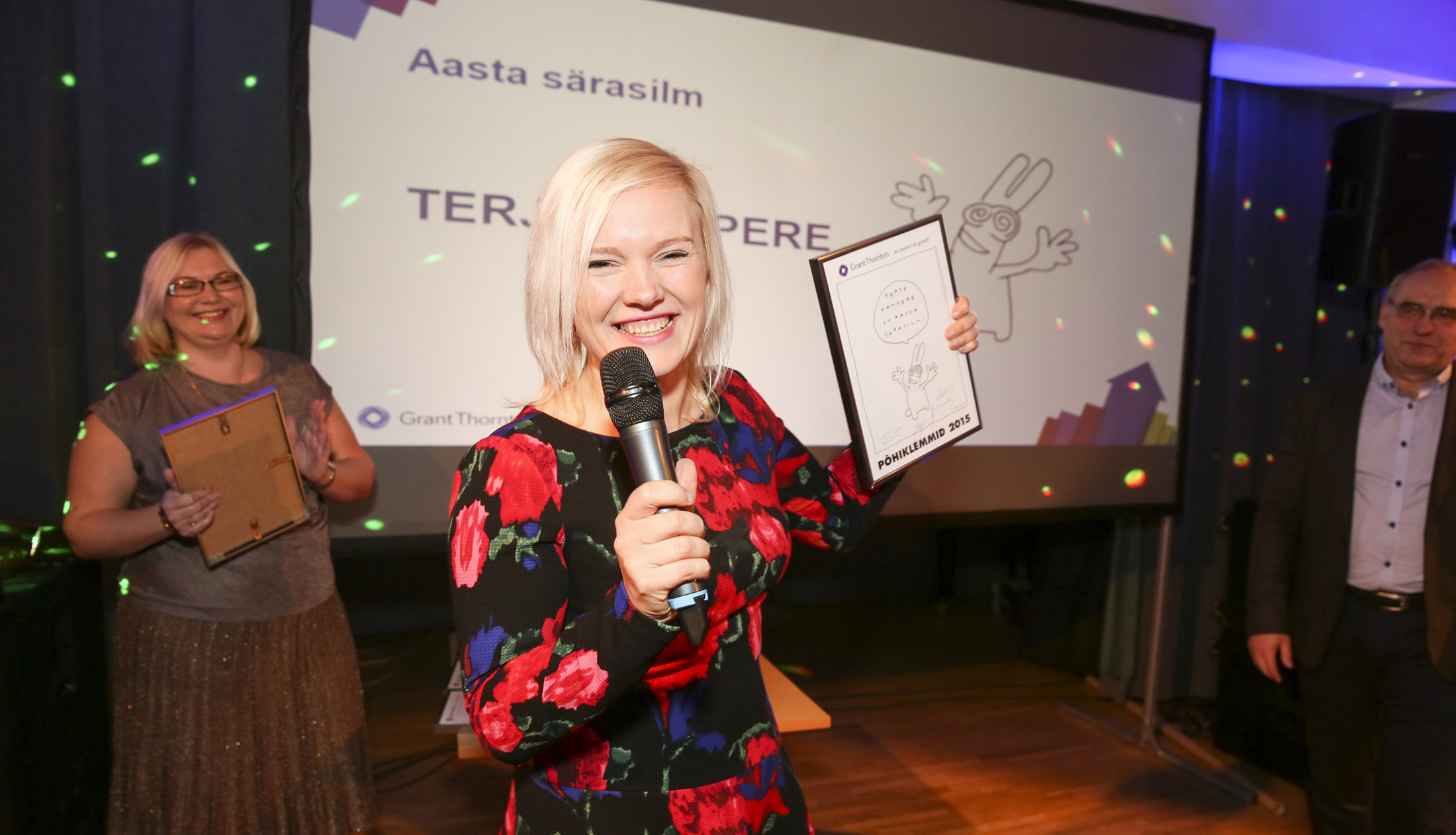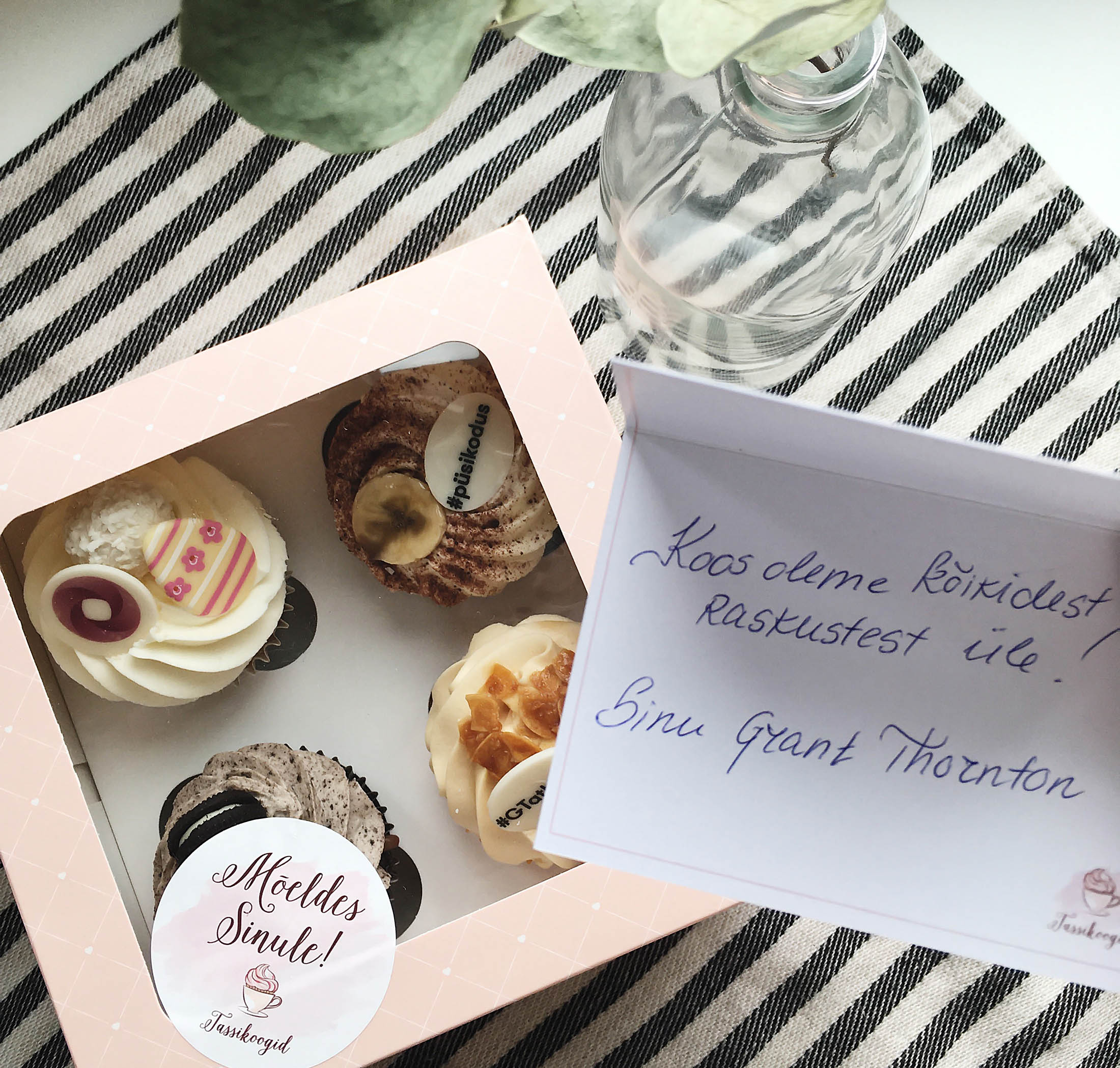What’s holding us here?
At Grant Thornton Baltic the average length of service is over four years, and nearly 15 percent of employees have been with the company for more than a decade. What’s holding them here so that they keep saying no to job offers from competitors or the temptation to look around in job portals?
Marge Litvinova says that employee satisfaction surveys are conducted on a regular basis and reveal much of what makes Grant Thornton Baltic a desirable employer. “Flexible organisation of work and working hours, work-life balance, the possibility to work from home, the lack of hierarchy and the feeling that the employer trusts the employees,” she lists as arguments. “But most importantly, we genuinely care about our people and try to make them feel welcome from day one.”
Tarmo Rahkama, who has been with the company for 15 years, uses just one word to explain his long service: “People!” Adding to this, he says that Grant Thornton Baltic is not just a place to come to work, but is like a second family. “We also get together outside of work,” he reveals. “I play tennis with some, go to the cinema or hiking with others. I keep in touch with former colleagues and meet up with them from time to time as well. Good relationships are very important at work, because it’s our synergy and cooperation that create value.”
Terje Liiv was awarded the title of Bright Eyes of the Year by her colleagues in 2015. On the left is Head of Marketing and Communication Gerli Soosalu.
Terje Liiv confirms that the synergy in the company is very good and describes the firm as open, professional, fun and friendly: all in all, a great place to work. However, even the greatest job can sometimes leave you in tears because you are worried about your colleagues. Liiv explains: “It was my last day at work before I went on maternity leave. We were having an online meeting with one of our client’s auditors who, using very colourful language and raising their voice, spoke at length about the poor job we’d done. It’s difficult to make me lose my cool, but that time I started crying! Not because of the bad feedback, but because I didn’t want to leave this unpleasant situation for my poor colleagues to deal with – I was going to be at home from the next day!”
Together, with Liiv at home and her colleagues in the office, the situation was resolved in the days that followed. “I just couldn’t walk away, because for me, our team is like a family,” she says.
Kai Paalberg uses three words to describe her employer: cool, free and diverse. She adds that the organisational culture in the firm is challenging for managers. “Working at Grant Thornton Baltic is a little like running your own small business, except that the support services are there: HR, marketing and IT support,” she explains. “And then, of course, there’s the bigger team working across the whole company.”
When the pandemic forced people to work from home, Grant Thornton Baltic surprised them one day with cupcakes delivered to their doors. Sweet, right?
Head of Legal Kristel Tiits says that she has put down roots in the company for the same reasons as many others, including the friendly colleagues and the flexible working arrangements in terms of both time and place. It is also important to her that there is no strict hierarchy, which is otherwise common in business advisory companies. “We have an open-door policy, so anyone can go to the chairman of the board or another partner at any time to ask them for advice or to discuss things,” she says. She adds with a smile that since summer 2018, when the company moved to new offices on Pärnu Road, the managers no longer have separate offices, so there are in fact no closed doors to knock on at all.
Anastasia Borovaja also praises the open and personable management style, in which strict hierarchy has no place. “People in the company have freedom to do things,” she says. “When things go well and go right, we celebrate together. When things go wrong, we learn together.” Kai Paalberg sums up: “It’s very important for managers to know how to keep their team together, because people are the most important asset a company has!”



